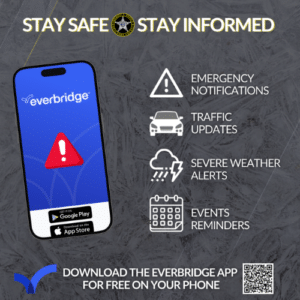The Beaufort County Sheriff’s Office is urging citizens to stay vigilant against a rising number of scams that are targeting residents in our community and nationwide.
According to the Pew Research Center, 73% of U.S. adults have experienced some form of online scam or attack, with most people receiving scam calls, texts, or emails weekly. The Federal Trade Commission (FTC) also reports a dramatic increase in impersonation scams, with older adults especially at risk of losing tens of thousands or, in some cases, their entire life savings.
Locally, the Sheriff’s Office has investigated or received reports about multiple scams circulating in Beaufort County just this week.
Recent local scams
- Ankle monitor bail scam
- This week, a Beaufort County woman was contacted by a “company” claiming they could help release her husband from jail faster if she purchased an ankle monitor through them. She paid more than $2,000 before realizing it was a scam. This scheme has been reported nationwide, preying on families during stressful times.
- Spoofed Sheriff’s Office phone calls
- On Friday, September 5, 2025, our office received upwards of a dozen reports of scam phone calls in which the caller ID falsely displayed the Beaufort County Sheriff’s Office number. Scammers attempt to pressure victims into paying fines or fees. Our office DOES NOT make such calls demanding money, and citizens should hang up immediately if contacted.
Other common scams affecting residents
- Government or business impersonation scams
- Criminals pose as trusted agencies, such as the IRS, Social Security, or major companies, and convince victims to transfer money under the guise of “protecting” their funds.
- Phishing texts and emails
- Scammers send messages that appear to come from banks, delivery companies, or streaming services, prompting people to click on malicious links or provide personal information.
- Online marketplace scams
- Fraudsters use platforms like Facebook Marketplace and resale apps to lure buyers with fake listings or trick sellers into sending items without payment.
How to protect yourself
- Be skeptical of unsolicited calls, texts, or emails requesting personal or financial information.
- Do not trust the caller ID, as scammers can spoof phone numbers to look official.
- Verify any request directly with the agency or business using an official phone number.
- Never send money, gift cards, or cryptocurrency to someone you don’t know.
Report suspected scams to the Beaufort County Sheriff’s Office non-emergency dispatch line at 843-524-2777 or the FTC at ReportFraud.ftc.gov and the FBI’s Internet Crimes Complaint Center (IC3) at www.ic3.gov.
The Beaufort County Sheriff’s Office will continue to share updates and prevention tips on digital and social media platforms to help keep our community informed and protected.







